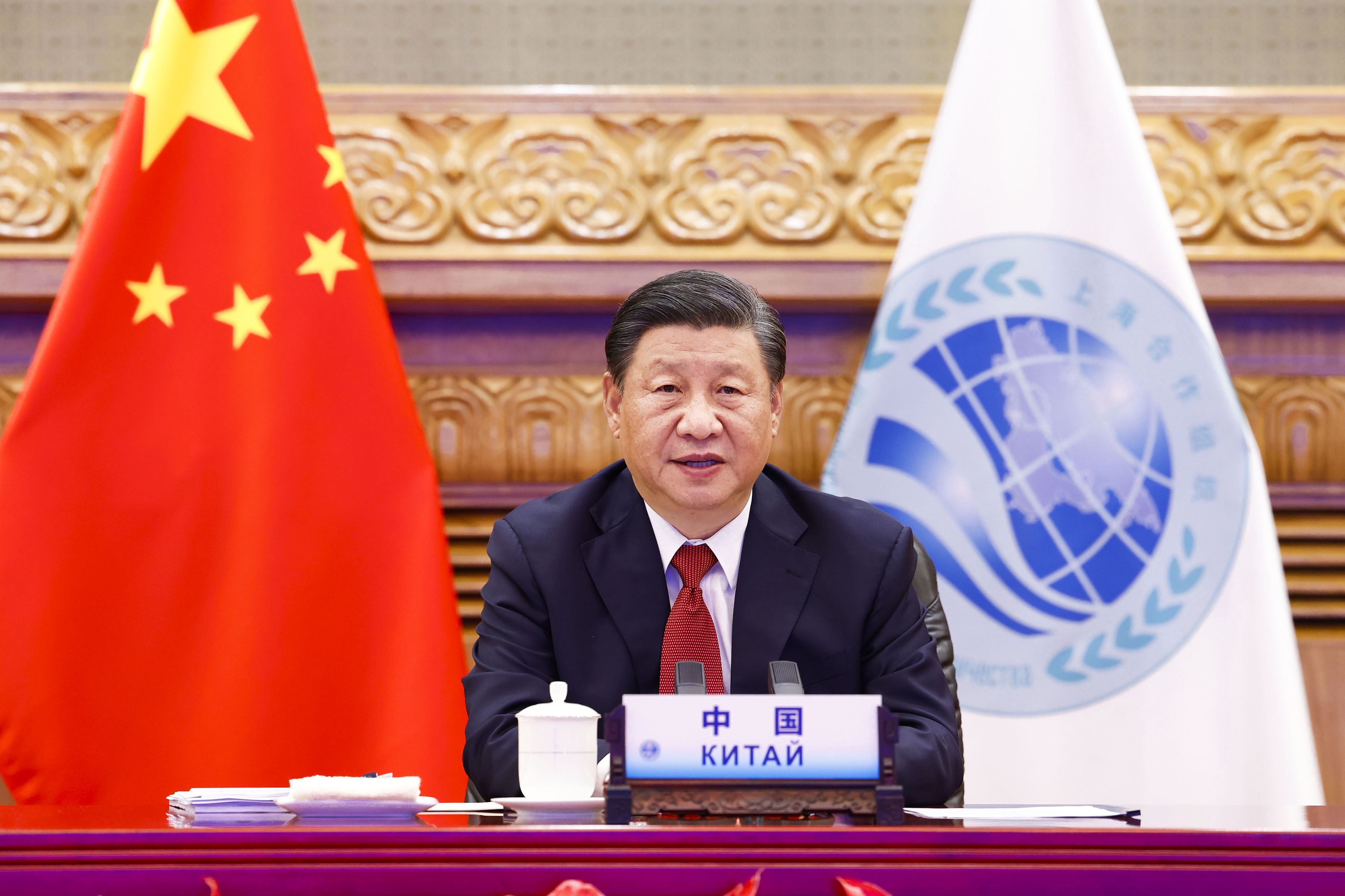20 years on, Xi urges solidarity, integration for closer SCO community with shared future
 0 Comment(s)
0 Comment(s) Print
Print E-mail Xinhua, September 18, 2021
E-mail Xinhua, September 18, 2021

Chinese President Xi Jinping on Friday urged solidarity, upholding common security, openness and integration for the Shanghai Cooperation Organization (SCO) members to forge a closer SCO community with a shared future.
Xi made the comments via video link as he addressed the 21st meeting of the Council of Heads of State of the SCO, hosted by this year's rotating presidency Tajikistan.
All SCO members have pledged to further enhance policy communication, security cooperation, smoothing trade, financing and people-to-people exchanges, according to a declaration issued after the conclusion of the meeting.
The organization, which covers three-fifths of the Eurasian continent, nearly half of the world's population, and over 20 percent of the global gross domestic product, is embracing its 20th anniversary this year.
"I am confident that the growing SCO family will stride ahead together with all the progressive forces of the world, and be the builders of world peace, contributors to global development and defenders of the international order," said Xi.
Enhancing solidarity to counter challenges
"We need to follow the journey of enhancing solidarity and cooperation," Xi said, adding SCO members should make the most of the meeting mechanisms and platforms at all levels, step up policy dialogue, communication and coordination.
Calling fighting COVID-19 the most pressing task, Xi urged deepening international cooperation against the virus and promote fair and equitable distribution of vaccines, adding China has provided close to 1.2 billion doses of finished and bulk vaccines to over 100 countries and international organizations.
Noting Afghanistan has undergone drastic changes and the country still faces many daunting challenges, Xi called on SCO members to step up coordination, make full use of platforms such as the SCO-Afghanistan Contact Group and facilitate a smooth transition in Afghanistan, encourage Afghanistan to put in place a broad-based and inclusive political framework, and resolutely fight all forms of terrorism.
Joint efforts were also highlighted at the ensuing joint summit of the leaders of the SCO and the Collective Security Treaty Organization member states on the Afghanistan issue, where Xi urged interactions with Afghanistan from a rational and pragmatic angle, and said that certain countries should shoulder due responsibility for Afghanistan's development.
As the SCO members are all near neighbors of Afghanistan, and Afghanistan is an observer state of the SCO, the organization enjoys unique convenience and advantages in addressing the issues compared with other similar international arrangements, said Deng Hao, secretary-general of the China Center for Shanghai Cooperation Organization Studies.
"Aimed at addressing regional challenges that concern the interests of all, China's proposals have added new dimensions to related cooperation mechanisms, demonstrating a sense of responsibility as a major country to promote peace, stability and people's livelihoods," added Deng.
Advancing integrated development
Stressing the SCO members need to follow the journey of promoting openness and integration, Xi said they should continue to promote trade and investment liberalization and facilitation, and create growth drivers of cooperation such as digital economy, green energy and modern agriculture.
In 2020, the combined economic size of the SCO countries reached 18.4 trillion U.S. dollars, an 11-fold increase since its founding, while intra-SCO trade jumped eight times to 6.2 trillion dollars over the same period, a vivid proof of intensified SCO cooperation with concrete outcomes.
To facilitate post-COVID economic recovery in SCO countries, Xi said China will continue to share its market opportunities, strive to reach 2.3 trillion U.S. dollars in its cumulative trade with other SCO countries in the next five years, and improve its trade structure and balance.
"As SCO members are diverse in their national realities and development priorities, China's call for open cooperation and integration has echoed the common aspiration for economic recovery and sustainable growth, showing a strong determination to tide over difficulties together with the SCO family," said Sun Zhuangzhi, director of the Institute of Russian, Eastern European and Central Asian Studies at the Chinese Academy of Social Sciences.
Boosting interactions
Noting interactions between civilizations provide the most solid foundation for the SCO's development, Xi emphasized the need to encourage exchanges, dialogue, harmony and co-existence between civilizations.
He proposed more projects including those of science and technology, education, culture, among others, adding China will provide 1,000 training opportunities in poverty alleviation for other SCO countries in the next three years, and host an SCO youth technology and innovation forum next year. He also extended welcome to SCO countries' participation in the 2022 Beijing Olympic and Paralympic Winter Games.
At the meeting, the attending leaders of relevant countries and international organizations voiced support for multilateralism, as well as opposition to hegemonism, unilateralism and interference in other countries' internal affairs under the pretext of democracy and human rights, and support for the independent choice of development paths for SCO countries.
"Amid resurging unilateralism and protectionism, the joint emphasis by SCO members on the importance of mutual learning and exchanges sheds light on the urgency for the region and the international community to adhere to mutual consultation and work for a community with a shared future," said Professor Yana Leksyutina of St. Petersburg State University in Russia.
In addition, the meeting has launched procedures to admit Iran as a member state of the SCO, as well as Saudi Arabia, Egypt and Qatar as new dialogue partners.
Hailing the SCO as an institution of global governance, Prof. B.R. Deepak at Jawaharlal Nehru University in India, said the new developments at the organization will help further extend the reach of multilateralism to more countries, unleash greater cooperation potential, and beef up the international voice of developing countries in the region.






Go to Forum >>0 Comment(s)